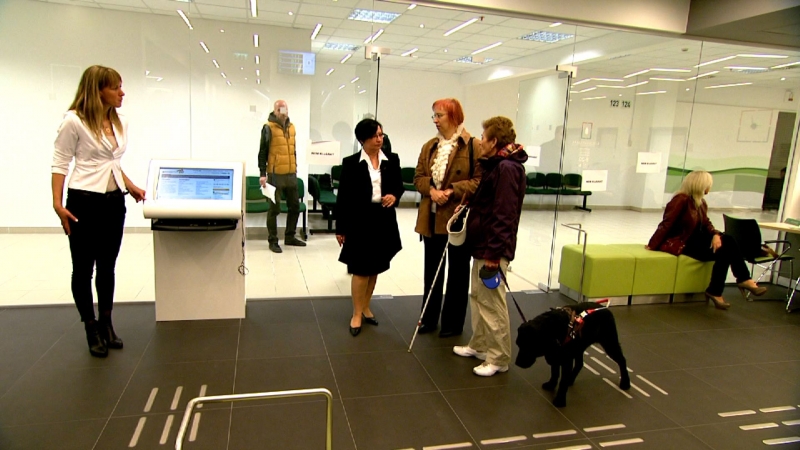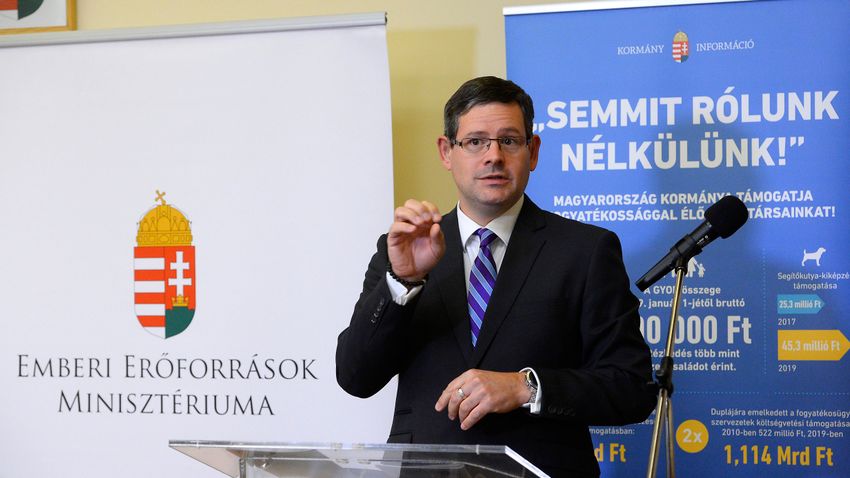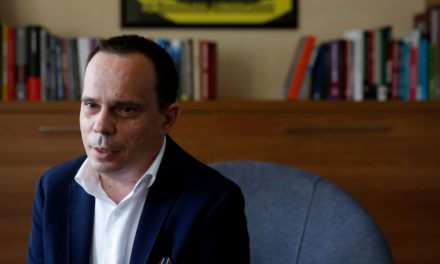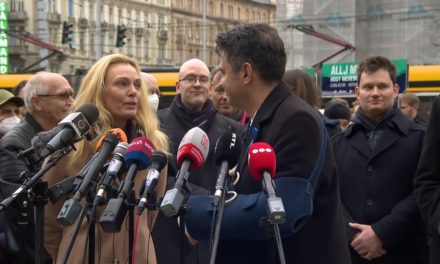Nearly a fifth of the population of the European Union is disabled, but their media representation dwarfs the representation of the interests of LGBTQ people. Although an effective legislative mechanism has emerged at the EU level in the past decade, which is also felt in practice, accessibility of access to information still varies at the level of individual member states. Ádám Kósa, a member of the European Parliament of Fidesz, reported on the domestic results of the issue of the disabled, as well as the fact that the double standard applied to certain social groups can be perceived at the EU level.
There are nearly 87 million people with disabilities in the European Union, which represents approximately nineteen percent of the population of the Union. The European Parliament has 705 members, of which every fifth should be disabled in order to faithfully reflect the proportions, said Ádám Kósa, a representative of the European Parliament (EP) of Fidesz, when contacted by our newspaper. At the same time, the representative indicated that he is not an unconditional supporter of quotas. - The basic principle is sacred to me: the members of the European Parliament are elected by the citizens of the member states - he emphasized. As he pointed out: it is the responsibility of individual member states to nominate many more disabled persons as representatives.
So far, only Fidesz has recognized the importance of this in our country. I have been able to represent Hungary in the European Parliament since 2009, where I was the very first deaf MEP - he pointed out.
Ádám Kósa said: very few representatives with disabilities work in the EP. I can count them on one hand. There are two in the People's Party: Stelios Kympouropoulos from Greece and David Lega from Sweden. Katrin Langensiepen represented the Greens, he pointed out, and then added: he previously worked together with the deaf Flemish representative Helga Stevens and Marek Plura, who came from Poland.
I have a very good working relationship with all of them, and in the disability working group we try to coordinate our work, which is supported by many non-disabled representatives, he emphasized.
As he pointed out: the EU adopted a directive on the accessibility of the websites and mobile applications of public sector organizations, as well as the accessibility requirements for products and services.
"I was also a reporter for the latter, which provided me with a meaningful opportunity to influence," he added. Ádám Kósa also reminded: it is the duty of the member states to transpose and implement these directives into national law. Hungary is making huge strides forward in this field. As he said: it is enough to think only about the barrier-free projects for government windows or the info-communication developments, thanks to which our compatriots with disabilities are now able to do things without obstacles.

Barrier-free steering wheel/Source: Győri Hírek
Technological progress gives us many tools to overcome previous disadvantages, he pointed out. According to Ádám Kósa, there is a lack of automation for the time being: numerous regulations, obligations or even voluntary commitments ensure the enforcement of accessibility criteria, but most of it depends on people.
Regarding the protection of the interests of minority social groups living in the EU, Ádám Kósa put it this way: the protection of persons belonging to minorities is an expressed basic value of the EU, together with democracy, the rule of law and respect for human rights. As he said: they are not measured with equal standards when it comes to different minorities. He added: the double standard is obvious and especially painful when the perspectives of people with disabilities are often not taken into account.
The representative reminded: the given social groups realized that as a first step they must first create an EU strategy and then include the issues important to them in EU legislation. As he pointed out: this is accompanied by spectacular and often violent lobbying, where the tailwind is also different in strength.
Obviously, I am not exaggerating when I say that the LMTBQ lobby is taking everything, he said.
Ádám Kósa put it this way: the media likes to pick up content that is different from the usual, because it can bring a lot of viewership, but we should not throw away the achievements we have achieved so far because of new minority cases. She really wants disabled people to be featured more often in the media. "That's why I was very happy to receive the excellent short films made on the occasion of International Sign Language Day," he said.
Source: Hungarian Nation
Cover photo: Ádám Kósa (Photo: MTI/Lajos Soós)












